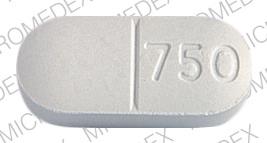Basaljel and Alcohol/Food Interactions
There is 1 alcohol/food/lifestyle interaction with Basaljel (aluminum carbonate).
Aluminum Carbonate Food/Lifestyle
Major Food Interaction
Citrate, or citric acid, can increase the absorption of aluminum carbonate. This may lead to elevated blood levels of aluminum, particularly in individuals with reduced kidney function, since aluminum is primarily eliminated by the kidneys. Excess aluminum may deposit and cause problems in various tissues including bone, brain, heart, liver, muscles, and spleen. Over time, weak bones, bone pain, fractures, skeletal deformity, brain disorders, and anemia may develop. Talk to your doctor before using aluminum carbonate if you have kidney impairment or are on hemodialysis. You should avoid or limit the consumption of citrate-containing foods and beverages (e.G., soft drinks, citrus fruits, fruit juices) during treatment with aluminum carbonate. Be aware that some effervescent and dispersible drug formulations may also contain citrate and should be restricted as well. Even if you do not have kidney problems, it may be best to separate the dosing of aluminum carbonate and citrate-containing products by 2 to 3 hours. Talk to a healthcare professional if you have any questions or concerns. It is important to tell your doctor about all other medications you use, including vitamins and herbs. Do not stop using any medications without first talking to your doctor. When aluminum carbonate is taken during enteral nutrition therapy (tube feeding), the tube may get clogged. Therefore, aluminum carbonate should not be mixed with or given after high-protein tube feedings. The dose should be separated from the feeding by as much as possible, and the tube should be thoroughly flushed before administration of the dose.
Switch to professional interaction data
Basaljel drug interactions
There are 229 drug interactions with Basaljel (aluminum carbonate).
Basaljel disease interactions
There is 1 disease interaction with Basaljel (aluminum carbonate) which include:
More about Basaljel (aluminum carbonate)
Related treatment guides
Drug Interaction Classification
| Highly clinically significant. Avoid combinations; the risk of the interaction outweighs the benefit. | |
| Moderately clinically significant. Usually avoid combinations; use it only under special circumstances. | |
| Minimally clinically significant. Minimize risk; assess risk and consider an alternative drug, take steps to circumvent the interaction risk and/or institute a monitoring plan. | |
| No interaction information available. |
See also:
Further information
Always consult your healthcare provider to ensure the information displayed on this page applies to your personal circumstances.


